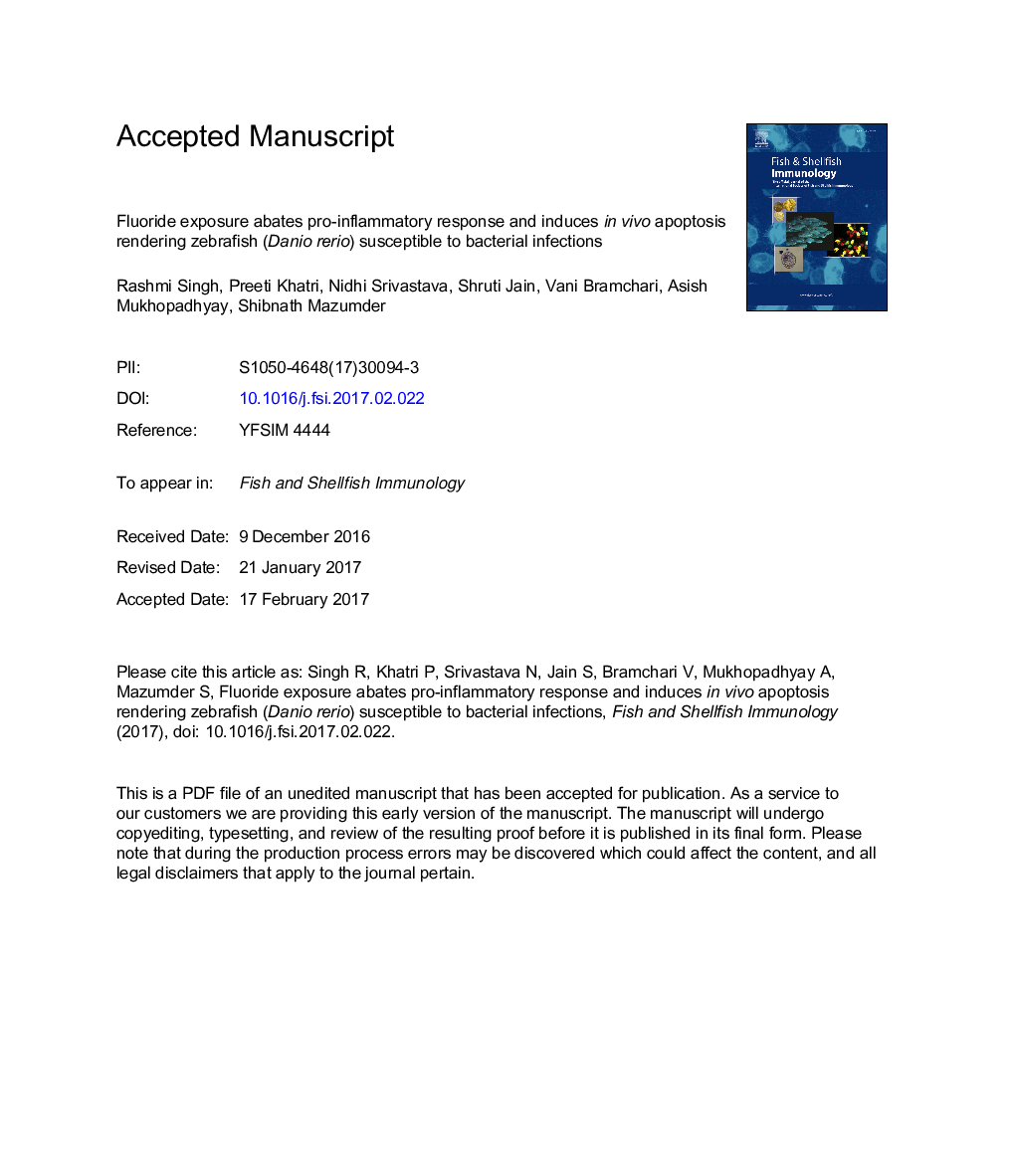| Article ID | Journal | Published Year | Pages | File Type |
|---|---|---|---|---|
| 5540932 | Fish & Shellfish Immunology | 2017 | 34 Pages |
Abstract
The present study describes the immunotoxic effect of chronic fluoride exposure on adult zebrafish (Danio rerio). Zebrafish were exposed to fluoride (71.12 mg/L; 1/10 LC50) for 30 d and the expression of selected genes studied. We observed significant elevation in the detoxification pathway gene cyp1a suggesting chronic exposure to non-lethal concentration of fluoride is indeed toxic to fish. Fluoride mediated pro-oxidative stress is implicated with the downregulation in superoxide dismutase 1 and 2 (sod1/2) genes. Fluoride affected DNA repair machinery by abrogating the expression of the DNA repair gene rad51 and growth arrest and DNA damage inducible beta a gene gadd45ba. The upregulated expression of casp3a coupled with altered Bcl-2 associated X protein/B-cell lymphoma 2 ratio (baxa/bcl2a) clearly suggested chronic fluoride exposure induced the apoptotic cascade in zebrafish. Fluoride-exposed zebrafish when challenged with non-lethal dose of fish pathogen A. hydrophila revealed gross histopathology in spleen, bacterial persistence and significant mortality. We report that fluoride interferes with system-level output of pro-inflammatory cytokines tumour necrosis factor-α, interleukin-1β and interferon-γ, as a consequence, bacteria replicate efficiently causing significant fish mortality. We conclude, chronic fluoride exposure impairs the redox balance, affects DNA repair machinery with pro-apoptotic implications and suppresses pro-inflammatory cytokines expression abrogating host immunity to bacterial infections.
Related Topics
Life Sciences
Agricultural and Biological Sciences
Aquatic Science
Authors
Rashmi Singh, Preeti Khatri, Nidhi Srivastava, Shruti Jain, Vani Brahmachari, Asish Mukhopadhyay, Shibnath Mazumder,
